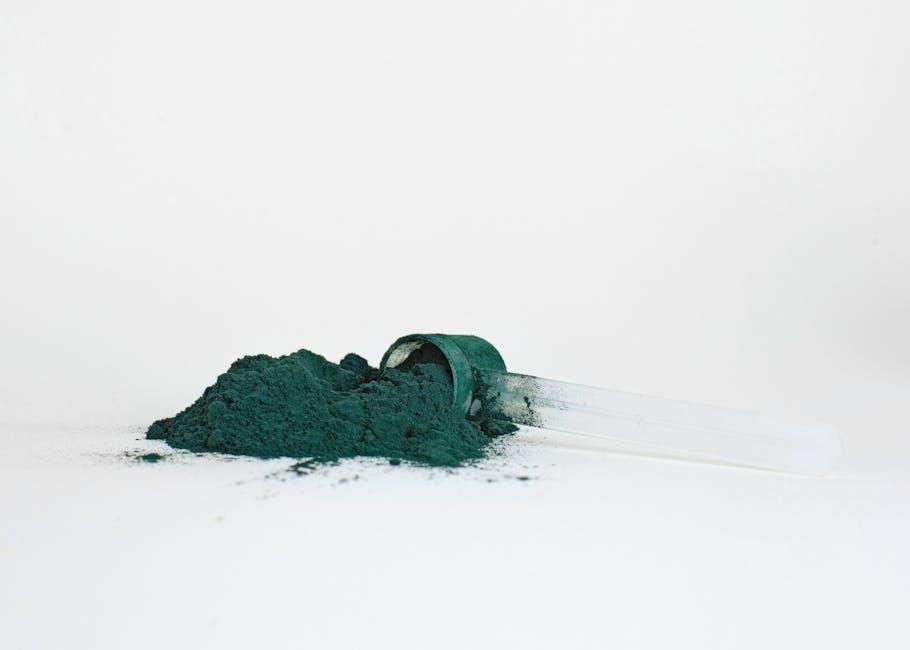In a world increasingly leaning towards healthier lifestyles and lasting choices, the rise of plant-based protein powders has taken center stage. No longer just a niche market for athletes and fitness enthusiasts, these natural powerhouses are transforming how we think about nutrition. With a kaleidoscope of flavors, textures, and sources—from pea and hemp to brown rice and pumpkin seed—plant-based protein powders promise not only to fuel our bodies but also to please our palates. Yet, as the shelves overflow with options, discerning consumer taste buds are eager for more than just a nutrient boost; they demand a harmonious blend of taste, mixability, and clean ingredients. This article delves into the vibrant world of plant-based protein powders,exploring how they stack up in flavor profiles,their ease of blending into everyday meals,and the importance of transparency in sourcing clean,wholesome ingredients. Join us as we uncover the dynamics of this nutritional revolution, and find out how you can elevate your diet with the power of plants.
Exploring the Flavor Spectrum of Plant-Based Protein Powders
Plant-based protein powders offer a diverse array of flavors that can elevate your smoothies, baked goods, and even savory dishes. Recognizing the uniqueness of each source—be it pea, hemp, brown rice, or pumpkin seed—allows for an exciting exploration of taste. When selecting a protein powder, consider the following flavor profiles:
- Pea Protein: Earthy and slightly sweet, perfect for mixing with fruits or cocoa.
- Hemp Protein: Nutty with a rich texture, can enhance granola and energy bars.
- Brown Rice Protein: Mild and neutral, easily blends into various recipes.
- Pumpkin Seed Protein: Distinctly savory with a hint of nuttiness, great for savory dishes and dressings.
Mixability is another crucial factor to consider when choosing a plant-based protein powder. Not all powders dissolve easily, which can affect the texture of your drinks or meals. A quick comparison of some popular options reveals critically important variances:
| Protein Powder | Mixability Rating |
|---|---|
| pea Protein | ★★★★☆ |
| Hemp Protein | ★★★☆☆ |
| Brown Rice Protein | ★★★★★ |
| pumpkin Seed Protein | ★★★☆☆ |
Choosing a powder with a good balance of flavor and mixability can considerably enhance your culinary experience while ensuring you meet your nutritional goals. Always be sure to look for options that contain clean ingredients, devoid of additives and preservatives, to ensure you are fueling your body with the best possible nutrition.

achieving Smooth Blends: The Mixability Factor in Plant Proteins
When selecting a plant-based protein powder, the ability to mix it seamlessly into your favorite beverages and meals can significantly enhance your overall experience. A powder that clumps or leaves an unpleasant texture can detract from the delight of your smoothie or post-workout shake. Therefore, mixability is a crucial factor to consider. Look for products formulated with a fine grind and without excessive fillers that can compromise texture. Choosing blends with natural emulsifiers like sunflower lecithin or guar gum can greatly improve your protein’s solubility, providing a smoother blend without unwanted graininess.
To help you navigate the realm of plant-based proteins,here’s a quick comparison of common sources based on their mixability:
| Protein Source | Mixability Rating | Characteristics |
|---|---|---|
| Pea Protein | ✨✨✨✨ | Good solubility and creamy texture |
| Brown Rice Protein | ✨✨✨ | Gritty texture; frequently enough best when blended |
| Hemp Protein | ✨✨ | Thicker and nuttier; may require more blending |
| Pumpkin Seed Protein | ✨✨✨✨ | Smooth and slightly sweet; blends well in shakes |
Ultimately,achieving that perfect blend is all about experimenting with the right plant protein for your needs and preferences. Mixing techniques, such as using a high-speed blender or shaker bottles, can also play a key role. By understanding the mixability factor, you can elevate your plant-based protein experience and enjoy your health journey without the frustrating texture challenges.

Decoding Ingredients: What to Look for in Clean Plant-Based Powders
When shopping for clean plant-based protein powders, it’s essential to scrutinize the ingredient list to ensure you’re making a health-conscious choice. Look for products that prioritize whole-food sources such as pea, brown rice, hemp, and pumpkin seed proteins. These ingredients not only provide the necessary amino acids but also offer additional nutrients and fiber that are beneficial for overall health. Steer clear of powders that contain artificial sweeteners, flavors, or preservatives, as these can detract from the clean eating experience. Aim for transparency from brands about their sourcing and processing methods, ensuring you select a product with minimal processing and high-quality ingredients.
Consider the presence of added vitamins and minerals, which can enhance the nutritional profile of the protein powder. Many clean plant-based options are fortified to help fill the gaps in a plant-centric diet. Additionally, look for products containing superfood ingredients like spirulina, chlorella, or maca, which can add a boost of antioxidants and other beneficial compounds. Ignoring ingredient transparency can lead to hidden sugars and unwanted fillers, so always opt for brands that provide clear and concise labeling. Remember, a clean protein powder is not just about the protein content; it should be a wholesome blend that supports your health goals.

Top Picks for Health-Conscious Consumers: Recommended Plant Protein Brands
When it comes to selecting the best plant protein powders, health-conscious consumers are often on the lookout for brands that prioritize taste, mixability, and clean ingredients. Here are some top choices that fit the bill:
- Orgain organic Protein: This brand combines pea protein with brown rice and chia seeds, offering a creamy texture and delightful flavors. It’s known for its smooth mixability, making it a favorite in shakes and smoothies.
- Vega One: Packed with protein from pea, hemp, and pumpkin seeds, vega One is a nutrient-dense option with added greens and probiotics, perfect for the health-conscious individual.
- Sunwarrior Warrior Blend: This unique blend features a mix of pea, hemp, and goji berry proteins. It’s vegan, gluten-free, and contains essential amino acids, a perfect option for active lifestyles.
For those who prefer a specific dietary focus, consider the following brands known for their transparency and wholesome ingredient lists:
| Brand | Key Ingredient | Notable Benefits |
|---|---|---|
| Garden of Life | Sprouted Brown Rice Protein | Raw, organic, and non-GMO |
| Nutiva | hemp Protein | Rich in omega-3 and omega-6 fatty acids |
| Just Egg | Legume Protein blend | Excellent source of complete protein from beans |
The Conclusion
As we wrap up our exploration of plant-based protein powders, it’s clear that the world of nutrition is evolving, offering rich alternatives to traditional protein sources. Whether you’re a lifelong vegan,a curious flexitarian,or simply someone looking to enhance your diet with cleaner,sustainable options,plant-based proteins have something to offer everyone.
With advancements in taste and mixability, these powders no longer serve just as nutritional supplements but can enhance your culinary experience, turning smoothies, baked goods, and savory dishes into powerhouse meals. As consumers become more conscious of ingredient integrity, it’s essential to seek out brands that prioritize clean, high-quality components—after all, what you put into your body matters.
So the next time you’re in the market for a protein boost, remember to weigh taste, mixability, and ingredient quality. Embrace the diverse flavors and textures that plant-based proteins bring to the table, and let them inspire your journey toward a healthier, more sustainable lifestyle. With so many options at your fingertips, the perfect blend for your unique palate is just a scoop away. Happy blending!




